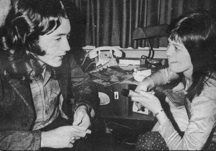

Irving is raring to do “Shakespeare, the Greeks, the classic tales of all Europe.” Despite the protests of Stoker’s clever young wife, Florence, against leaving Dublin, where “everything is laid out before you like a suit on a bed,” Stoker promptly assents.Īnd so he bids a brisk farewell to lacy fishing nets and regimes of barefoot push-ups on an Irish beach at dawn. O’Connor delights in cameos: En route to the hotel, we catch a glimpse of Yeats, “a silverback gorilla in a monocle,” while a skittish Oscar Wilde invites Stoker, his pal from university, to join him for a “constitutional” stroll of questionable intent.Īt the Shelbourne - O’Connor compresses a two-year friendship into a single momentous meeting - an entranced Stoker is invited to help Irving transform the Lyceum, a run-down London playhouse, into the birthplace of “respectable” theater and the showcase for a single blazing talent. Gratified by Stoker’s adulatory review, Irving summons the younger man to dine with him at the Shelbourne, Dublin’s grandest hotel. It’s Irving’s now legendary performance as the brooding Dane, hamming it up for a screaming, stampeding crowd as only Irving could, that promises to transform the pedestrian trajectory of Stoker’s life. “Eyes glowing red in the gaslight,” Irving terrifies the audience, “slinking towards the lip of the stage, left hand on hip, wiping his wet mouth with the back of his sleeve.

“Shadowplay” opens in Dublin in the winter of 1876, with O’Connor painting that ravishing city with a soft lyricism that Stoker himself might have envied: “Smacks heading down the estuary, trailing petticoats of nets, out towards the expanse of the sea.” Stoker, a government clerk who moonlights as a theater critic, is reeling from the visceral intensity of Irving’s performance in Dublin as Hamlet. Joseph O’Connor explores the likely source of Irving’s fury - his temper was notorious - in his novel “Shadowplay,” a vibrantly imaginative narrative of passion, intrigue and literary ambition set in the garish heyday of a theater presided over by a tyrannical Irving and an exquisitely vulgar Ellen Terry, Britain’s answer to Sarah Bernhardt. The author, Bram Stoker, was the devoted and long-suffering business assistant to the Lyceum’s capricious actor-manager, Sir Henry Irving, who angrily refused to read the part of the saber-toothed count. In 1897, a handful of spectators at the Lyceum Theater in London witnessed the improbable birth of “Dracula,” which was presented as a one-off stage reading before the novel was published some days later.


 0 kommentar(er)
0 kommentar(er)
